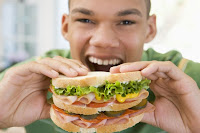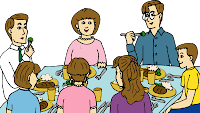Junk Food Addiction in Teens on the Autism Spectrum

"My teenage son with high functioning autism has (in my opinion) the absolute worse eating habits ...honestly, potato chips and soda make up about 75% of his diet. He would rather lose game privileges than eat a vegetable. I've given up! Help!!" We all know that adolescents need to eat well since their bodies are still growing, their brains are still changing, and their hormones may be taking a toll on their moods and energy levels. But we also know that adolescents are prone to eating irregularly, and sometimes quite poorly, particularly as they distance themselves from parental controls and eat more meals away from home. Pizza, cookies, ice cream, and soft drinks may be the most common foods in their diets at this age. But we have more influence and capacity to affect our adolescents' diets positively than we may think we do. The keys to positive change in the arena of diet and nutrition are positive attitude, planning, and preparation. These keys are already

